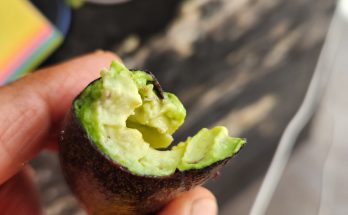By Mike Stoltz
While it does not come naturally to everyone, giving can be one of the most rewarding human experiences. A 1999 study led by Doug Oman of the University of California, Berkeley, found that older adults who volunteered for two or more organizations were 44 percent less likely to die over five years than were non-volunteers, even after allowing controls for their age, exercise habits, general health, and negative health habits like smoking. Scientists also believe that altruistic behavior releases endorphins in the brain, producing the positive feeling known as the «helper’s high.»
Being from California, I like getting high, even from a sunset after a wildfire or a day hike to the top of the Sierra Madre. But, «helper’s high?»
Ron Woodard, an American and one of the croquet players I interviewed two columns ago, pulled me aside after that interview and said I should look into a nonprofit where he was a past president. Patronato Pro Niños, he said, is remarkable because there was a pool of expats who all seem to reflect this embodiment of «helper’s high.»
Americans are considered instrumental in promoting giving, but expats of all shades are involved here. The UK donated one of the five medical vans with an assessed value of US $90,000.
Being so far from the pot shops in California, I thought I’d visit Patronato Pro Niños to see if I could get some second-hand «helper’s high.» So I went to the expansive facility on 75 Avenida Reforma, near the General Hospital.
I think the mission in and of itself was pretty moving, but not what I expected. In the process of the interview, I started feeling a little somber. According to Woodard and board member Sunnie Collins, the charity serves 45,000 underserved children (0-18 years ) in 350 government-registered pueblos in the state of Guanajuato. Think of a sold-out crowd at Yankee Stadium. Many children in this small geographic area need basic and advanced dental, medical, and, yes, even psychological treatment. According to Sunnie, there are about 200 children in palliative care. I listened to some of the heartbreaking stories and felt anything but high.
I was told of Patronato Pro Niños’ circuitous and modest beginning 55 years ago with American patron Stirling Dickinson’s involvement and a VW van roaming the campo in search of opportunities to help the disenfranchised. The group had popular walking tours, which generated a formidable 35% of the nonprofit’s income. They are still in operation today, according to their website https://patronatoproninos.org/
Today the organization sports five medical-dental mobile units that offer preventative dental services, including cleanings, extractions, and fillings. Patronato Pro Niños’ medical services are comprehensive. Not only do they provide care for the common cold, but they also offer treatments to alleviate chronic diseases. They support children with many needs, from dialysis supplies for kidney ailments to medications for cancer, diabetes, seizures, allergies, transplants, and more.
For me, this story took a more uplifting turn when Sunnie took me through a walking tour of one of the nonprofit’s engines for revenue. This was a well-organized series of individual rooms fully stocked and well-merchandised with many cool things for sale from local donations. Shoppers will love this set-up for good deals and unique consignment-type, hard-to-find items. Each room is organized with themes like «electronics,» «art and décor,» «household,» «curiosities,» and even some high-end «clothing» like Givenchy, J Crew, Ann Klein, BCBG, and others. They let me do a pre-sale perusal, and I found a fantastic Jackson Pollack knock-off for US $45, an Egyptian cotton towel set (barely used) for US $11, and a hard-to-find midcentury modern print for US $7. Their next bazaar will be this Saturday, March 18, from 10am to 2pm at Avenida Reforma 75, Ignacio Ramirez, just past the Central de Bomberos, as you are heading out of town to Queretaro.
In my research into some of the local nonprofits, I stumbled upon a reference I thought was a useful conclusion: «Being kind and generous leads you to perceive others more positively and more charitably,» writes Lyubomirsky in her book «The How of Happiness.«
So check out the bounty this Saturday, find a hidden treasure, and know you’re doing good for yourself and others. It sounds like a win-win to me.
For any constructive feedback and other column ideas, contact Mike at vmstoltz@gmail.com




